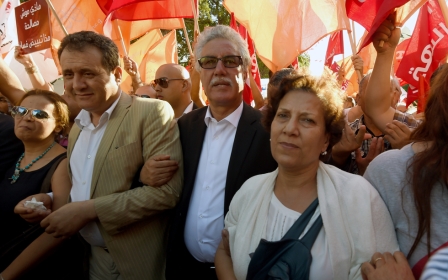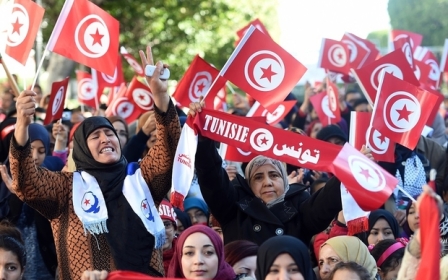Tunisian president names new PM amid claims of nepotism
Tunisia's president Beji Caid Essebsi has elevated junior minister Youssef Chahed to the top parlimentary job amid speculation over alleged family ties.
The president on Wednesday named the 40-year-old, who has been a local affairs minister and is a senior member of the Nidaa Tounes party.
"I met the president today... who charged me with forming a national unity government," Chahed said outside the presidential palace in Carthage.
The nomination comes days after parliament passed a vote of no confidence against the outgoing Habib Essid over economic and security concerns.
Chahed dismissed reports he had any family ties to Essebsi, responding to opposition charges that he was a distant relative of the president.
Local media and party sources have also said the two had family ties, with sources telling the Babnet website that Chahed's uncle, Bashir al-Hadad, is married to a relative of Essebsi's daughter Salwa.
Jilani Hamami, the head of the Popular Left Front, said: "The single characteristic used to select the head of the next government is belonging to the family [of Essebsi]".
"The organisations of the state are being turned into a family-run council."
He warned that the appointment would leave one person, the president, in control of the state.
Opposition leader Abdel Ruuf Sharif, head of the al-Hurra bloc - which broke off from Nidaa Tounes in January - said he doubted whether Shahid had "the right characteristics" to be prime minister.
Nidaa Tounes and the Ennahda party, both part of the ruling coalition, control a majority of the seats in parliament, which means Chahed's nomination is likely to be accepted by politicians.
Chahed takes office as Tunisia struggles with a stagnant economy and the threat posed by militant groups operating in the country.
He now has 30 days to come up with a ministerial team.
This article is available in French on Middle East Eye French edition.
Middle East Eye propose une couverture et une analyse indépendantes et incomparables du Moyen-Orient, de l’Afrique du Nord et d’autres régions du monde. Pour en savoir plus sur la reprise de ce contenu et les frais qui s’appliquent, veuillez remplir ce formulaire [en anglais]. Pour en savoir plus sur MEE, cliquez ici [en anglais].




